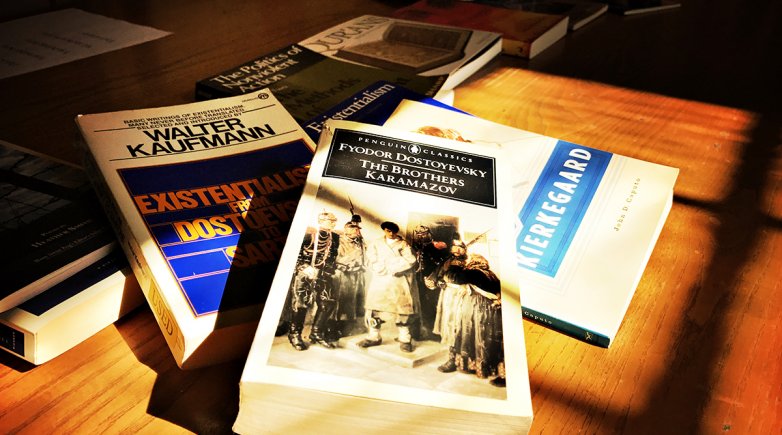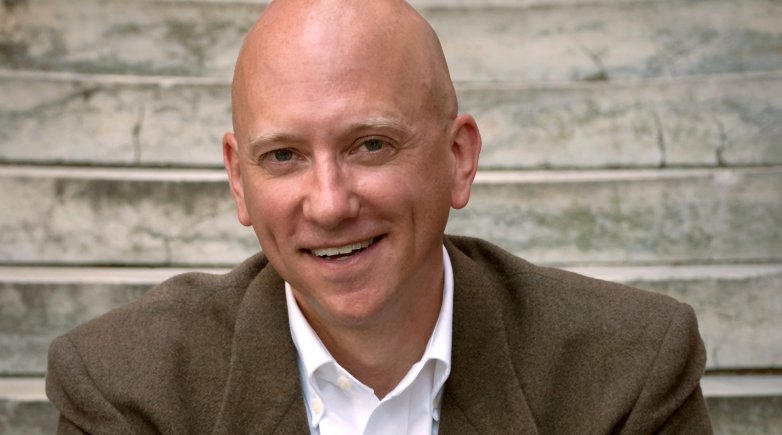Existentialism on a Friday afternoon
F block at the end of a long week seems an unlikely venue to discuss the meaning of life, but the seven students in Tom Simpson’s Religion 560 class are eager to dig in.
Fyodor Dostoevsky’s Notes from Underground is where the Simpson seven pick up their discussion on this gray Friday afternoon. The group spent the first weeks of fall term reading and dissecting the book, which is credited as one of the first works of existentialism. Today, Simpson has them conclude that examination by reading aloud and discussing an essay from The New Yorker titled “Can Dostoevsky Still Kick You in the Gut?”
Heck, yeah, the writer contends, and the Harkness discussion triggered by the piece supports that notion. Simpson needs only to touch the tiller occasionally as the students steer the conversation. “What if our own interest, as we construe it, consists of refusing what others want of us?” the essayist asks, and then observes that “individualism as a value includes the right to screw yourself up.”
Sounds about right, the seven agree.
From Underground, the class moves on to discuss the previous night’s reading assignment: “The Grand Inquisitor,” the poem tucked inside Dostoevsky’s final novel, The Brothers Karamazov. The poem, and the novel in which it resides, have been cited as favorites of intellectuals, first ladies, poets and popes. In the poem, the title character explains to Jesus Christ why his return from the heavens would interfere with the mission of the church.
An upper from Connecticut says the poem reminds him of Kipling’s “The White Man’s Burden,” drawing a parallel between that poem’s theme of Western society’s moral obligation to rule less-advanced civilizations and the church’s responsibility to shield and shepherd mankind in exchange for his freedom.
Such scholarly discourse feels right in Room 222 of the Academy Building. The room is a throwback, with bona fide blackboards and a squadron of pulldown maps seemingly on duty since existentialism was a fledgling philosophy and the Harkness table was new to campus. One can picture earlier generations of Exonians having similar exchanges here.
The discussion veers into comparing and contrasting Dostoevsky’s views about faith with those of the Danish philosopher Kierkegaard. Faith is a con (Dostoevsky), but continued introspection of that faith can confound the con man (Kierkegaard).
The bell tower gongs F block to a close, and the seven gather up their gear and go. It’s Friday afternoon. The meaning of life will have to wait till Monday.
Editor's note: This article first appeared in the fall 2017 issue of The Exeter Bulletin.



